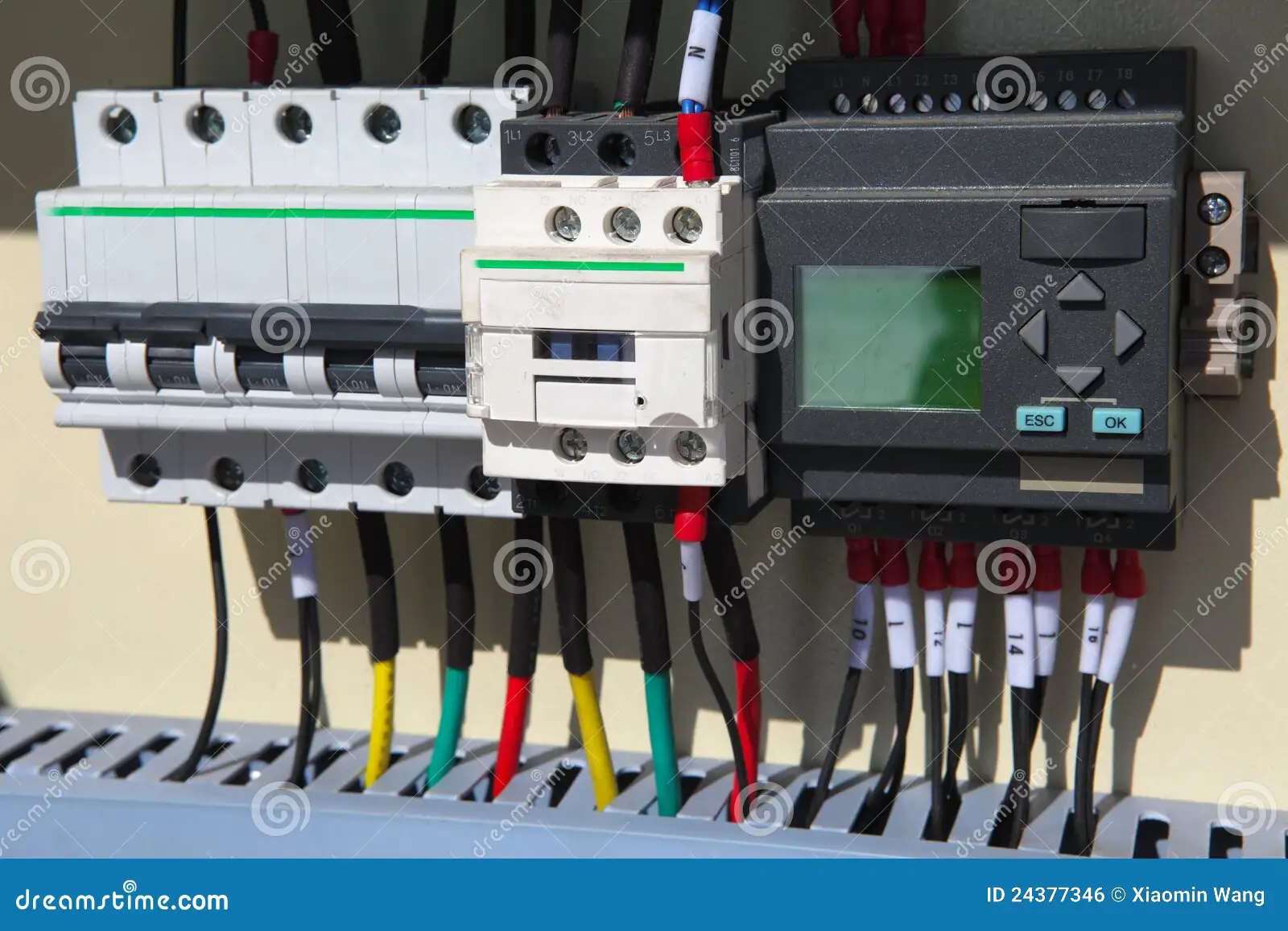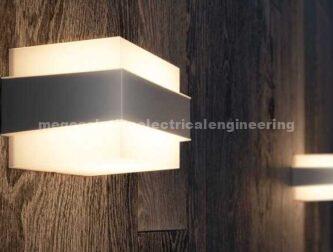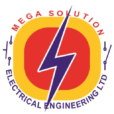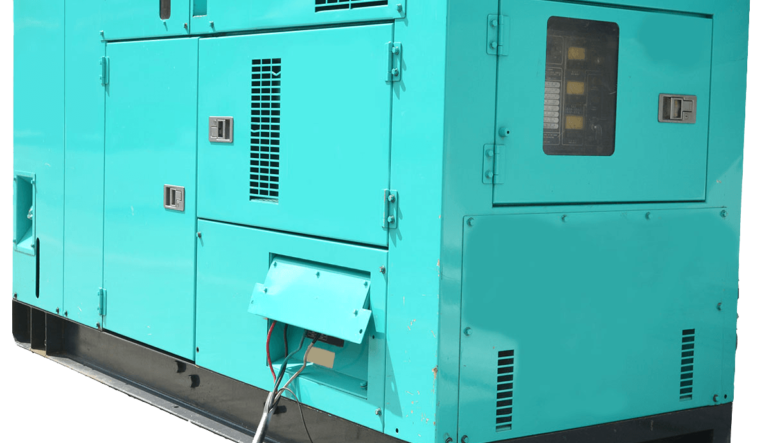Home / Blog Posts / How to Choose the Right Generator
How to Choose the Right Generator
Imagine this: It’s the middle of a stormy night, and suddenly, the power goes out. Your lights flicker off, the hum of your refrigerator falls silent, and your home feels like it’s frozen in time. No Wi-Fi, no charging phones, no way to keep your family warm or your food from spoiling. Now, imagine having a reliable generator that kicks in seamlessly, keeping your lights on, your appliances running, and your life uninterrupted.
How to Choose the Right Generator: A Complete Guide for Homeowners and Businesses
Imagine this: It’s the middle of a stormy night, and suddenly, the power goes out. Your lights flicker off, the hum of your refrigerator falls silent, and your home feels like it’s frozen in time. No Wi-Fi, no charging phones, no way to keep your family warm or your food from spoiling. Now, imagine having a reliable generator that kicks in seamlessly, keeping your lights on, your appliances running, and your life uninterrupted.
Whether you’re a homeowner looking to protect your family during emergencies, a business owner aiming to avoid costly downtime, or an outdoor enthusiast needing power on the go, choosing the right generator is a decision that can make all the difference. But with so many options—portable, standby, single-phase, three-phase, and more—how do you know which one is right for you?
In this guide, we’ll walk you through everything you need to know to choose the perfect generator for your needs. From understanding the difference between single-phase and three-phase power to evaluating fuel types, brand reliability, and spare parts availability, we’ve got you covered. Let’s dive in and ensure you’re never left in the dark again!
Why Do You Need a Generator?
A generator is more than just a piece of equipment—it’s a lifeline during unexpected power outages and a reliable source of energy for various needs. Here’s why you might need one:
Common Generator Use Cases
- Backup Power During Outages: Whether it’s a storm, grid failure, or natural disaster, a generator ensures your home or business stays powered.
Powering Essential Appliances: Keep your fridge running, your HVAC system operational, or critical medical equipment like oxygen machines functioning during emergencies.
Outdoor Activities: From camping trips to tailgating events, portable generators provide electricity for cooking, lighting, and charging devices.
Supporting Small Businesses or Worksites: Avoid costly downtime by powering tools, computers, and machinery during outages or in remote locations.
Benefits of Using Generator
Peace of Mind: Never worry about being left in the dark or losing access to essential services.
Convenience: Maintain your daily routine, whether it’s keeping your home comfortable or your business operational.
Safety: Protect your family, property, and equipment from the risks of power outages, such as food spoilage, frozen pipes, or security system failures.
A generator isn’t just a luxury—it’s a practical investment that ensures you’re prepared for the unexpected. Whether for emergencies, outdoor adventures, or business continuity, having the right generator can make all the difference.
Types of Generators
When choosing a generator, it’s important to understand the different types available and their pros and cons. Here’s a breakdown of the most common options:
1. Portable Generators
Pros: Affordable and budget-friendly, Easy to move and transport. and Ideal for small spaces or temporary use.
Cons: Limited power output (usually under 10,000 watts) and Requires manual setup and fueling.
2. Inverter Generators
Pros: Quiet operation, making them perfect for camping or residential areas, Fuel-efficient and environmentally friendly and Safe for sensitive electronics like laptops and smartphones.
Cons: Higher upfront cost compared to traditional portable generators and Lower power output, suitable for smaller loads.
3. Standby Generators
Pros: Automatic operation—starts instantly during a power outage,, High power output, capable of running an entire home or business and Whole-home coverage for extended outages.
Cons: Expensive to purchase and install and Requires professional installation and regular maintenance.
4. Solar Generators
Pros: Eco-friendly, using renewable solar energy, Silent operation with no noise pollution and No fuel required, reducing long-term costs.
Cons: Limited power output, making them unsuitable for heavy loads and Dependent on sunlight, which can be inconsistent.
Each type of generator has its strengths and weaknesses, so your choice will depend on your specific needs, budget, and intended use. Whether you need a portable option for camping, a standby generator for home backup, or an eco-friendly solar solution, there’s a generator out there for you.
Single-Phase vs. Three-Phase Generators
Understanding the difference between single-phase and three-phase generators is crucial for selecting the right power solution for your needs. Here’s a detailed comparison to help you decide:
a. What is a Single-Phase Generator?
Definition: A single-phase generator provides a single alternating current (AC) waveform, delivering power through one live wire and one neutral wire. It’s commonly used in residential and light commercial settings.
When to Use: 1. Homes, small offices, or light commercial applications. 2. Powering basic appliances like lights, refrigerators, small tools, and electronics.
b. What is a Three-Phase Generator?
Definition: A three-phase generator produces three alternating currents, each with a 120-degree phase difference. This design delivers consistent and balanced power, making it ideal for heavy-duty applications.
When to Use: 1. Industrial settings, large commercial buildings, or facilities with heavy machinery.
2. Powering equipment like motors, pumps, large HVAC systems, and manufacturing tools.
c. How to Decide Between Single-Phase and Three-Phase
Single-Phase Generators: Best for residential or light commercial use, Suitable for lower power demands and basic appliances. and More affordable and easier to install.
Three-Phase Generators: Ideal for industrial or commercial use with high power demands, Necessary for running heavy machinery or large-scale equipment and Provides more efficient and balanced power distribution.
Consult an Electrician: If you’re unsure about your power needs, seek professional advice to determine whether a single-phase or three-phase generator is right for you.
By understanding the differences and applications of single-phase and three-phase generators, you can make an informed decision that meets your specific power requirements. Whether you’re powering a home or a factory, choosing the right generator ensures efficiency, reliability, and peace of mind.
Key Factors to Consider When Choosing a Generator
Selecting the right generator involves evaluating several key factors to ensure it meets your specific needs. Here’s a detailed guide to help you make an informed decision:
a. Power Requirements
Calculate Your Wattage Needs: List common appliances and their wattage (e.g., fridge: 600W, AC: 1500W), Use the formula: Total Wattage = (Wattage of Appliance 1) + (Wattage of Appliance 2) + … Don’t forget to account for starting wattage (the extra power needed to start motors) versus running wattage (the power needed to keep appliances running).
Example: A typical home might need 5,000–7,000 watts to power essentials like lights, a refrigerator, and a sump pump during an outage.
b. Fuel Type
Gasoline: Affordable and widely available, Less efficient with a shorter shelf life (requires stabilizers for long-term storage).
Propane: Cleaner burning and longer shelf life and Requires storage tanks and may be less efficient in cold weather.
Diesel: Highly efficient and durable, ideal for heavy-duty use. and Noisy and more expensive upfront.
Natural Gas: Convenient for standby generators with a continuous fuel supply and Requires a gas line and professional installation.
c. Runtime and Fuel Efficiency
Runtime: Check how long the generator can run on a full tank at 50% load (most generators specify this).
Fuel Efficiency: Opt for models with better fuel efficiency, especially if you expect long outages or frequent use.
d. Portability vs. Permanent Installation
Portable Generators:
Pros: Affordable, easy to move, and versatile.
Cons: Requires manual setup and fueling.
Standby Generators:
Pros: Automatic operation, whole-home coverage, and no manual intervention.
Cons: Expensive and requires professional installation.
e. Noise Level of Generators
Why Noise Level Matters When Choosing a Generator: Noise can be a concern in residential areas, campsites or workplaces.
Comparison:
Portable generators: 65–75 decibels (similar to a vacuum cleaner).
Inverter generators: 50–60 decibels (quieter, like a normal conversation).
Standby generators: 60–70 decibels (louder but often installed farther from living spaces).
f. Budget
Price Ranges:
Portable generators: USD 500–500–2,000.
Inverter generators: USD 800–800–3,000.
Standby generators: USD 2,000–2,000–10,000+ (including installation).
Balancing Cost and Features: Invest in a generator that offers the best combination of reliability, features, and long-term value for your budget.
g. Availability of Spare Parts
Why It Matters: Generators require regular maintenance, and spare parts must be readily available to avoid costly downtime. If parts aren’t accessible in your country, repairs can become delayed and expensive.
Brands with Good Spare Parts Availability:
Perkins: Known for reliable diesel generators with widespread spare parts networks globally.
Cummins: Offers a strong global network for parts and service, making it a dependable choice in many countries.
Lister-Petter: Popular for industrial generators, with good parts availability in regions where they are widely used.
Tip: Before purchasing a generator, research whether the brand has a strong service network and spare parts availability in your specific country. Choosing a generator from a reputable brand with local support ensures easier maintenance and quicker repairs when needed.
Additional Features to Look For
When choosing a generator, additional features can enhance convenience, safety, and functionality. Here’s a breakdown of key features to consider, including options for both residential and industrial generators:
For Residential and Portable Generators:
Electric Start:
Easier to use than pull-start models, especially in emergencies or for users with limited physical strength.
CO Detection:
A built-in carbon monoxide detector shuts off the generator if dangerous levels of CO are detected, ensuring safety.
Multiple Outlets:
Allows you to power several devices simultaneously, making it versatile for home use.
Wheel Kit:
Makes portable generators easier to move, especially over rough terrain or long distances.
Transfer Switch:
Essential for safely connecting a generator to your home’s electrical system, preventing back feeding and ensuring seamless power transfer.
For Industrial Generators:
Automatic Voltage Regulator (AVR):
Maintains a stable voltage output, protecting sensitive industrial equipment from power fluctuations.
Remote Monitoring and Control:
Allows operators to monitor and control the generator remotely, ensuring optimal performance and quick troubleshooting.
Heavy-Duty Enclosures:
Weatherproof and soundproof enclosures protect the generator from harsh environments and reduce noise levels.
Parallel Operation Capability:
Enables multiple generators to operate together, providing scalable power solutions for large industrial applications.
Advanced Cooling Systems:
Ensures the generator operates efficiently under heavy loads and in high-temperature environments.
Fuel Monitoring Systems:
Tracks fuel levels and consumption, helping to optimize fuel efficiency and plan refueling.
Load Bank Testing Compatibility:
Allows for regular load testing to ensure the generator performs reliably during critical operations.
Why These Features Matter:
Residential Generators: Focus on convenience, safety, and ease of use for homeowners.
Industrial Generators: Prioritize durability, scalability, and advanced functionality to meet the demands of heavy-duty applications.
By considering these additional features, you can choose a generator that not only meets your power needs but also enhances usability, safety, and performance—whether for home use or industrial operations.
Frequently Asked Questions (FAQs)
Here are answers to some of the most common questions about generators:
1. What size generator do I need for my home?
Answer: The size of the generator depends on your power needs. Calculate the total wattage of the appliances you want to run simultaneously (e.g., fridge: 600W, AC: 1,500W, lights: 200W). Add 20–30% extra for starting wattage. A typical home may need 5,000–7,000 watts to power essentials during an outage.
2. Can I run a generator in the rain?
Answer: No, running a generator in the rain can be dangerous. Water can cause electrical shorts, damage the generator, or create a safety hazard. Always operate generators in a dry, well-ventilated area, and use a generator tent or canopy if outdoor use is necessary.
3. How long can a generator run continuously?
Answer: It depends on the generator’s fuel capacity and load. Portable generators typically run for 8–12 hours on a full tank at 50% load. Standby generators connected to a natural gas line can run indefinitely, while diesel or propane models may need refueling every 24–48 hours.
4. What’s the difference between a portable and standby generator?
Answer:
Portable Generators: Affordable, movable, and manually operated. Ideal for temporary use or small power needs.
Standby Generators: Permanently installed, automatic, and capable of powering an entire home or business. More expensive but offer seamless backup power.
5. Do I need a permit to install a standby generator?
Answer: Yes, most areas require a permit for standby generator installation due to electrical and gas line connections. Check with your local building authority to ensure compliance with codes and regulations.
6. How do I know if I need a single-phase or three-phase generator?
Answer:
Single-Phase: Choose for residential or light commercial use (e.g., homes, small offices) with lower power demands.
Three-Phase: Choose for industrial or commercial use (e.g., factories, large buildings) with high power demands or heavy machinery.
Tip: Consult an electrician to assess your power needs and determine the best option.
Choosing the right generator is a critical decision that depends on your power needs, budget, and intended use. Whether you’re looking for a portable generator for outdoor adventures, a standby generator for home backup, or an industrial-grade solution for your business, understanding the key factors—such as power requirements, fuel type, phase compatibility, and spare parts availability—will help you make the best choice.
At Mega Solution Electrical Engineering, we specialize in providing tailored generator solutions to meet your unique needs. With years of expertise and a commitment to quality, we’re here to guide you every step of the way.
Still unsure which generator is right for you? Contact our experts at Mega Solution Electrical Engineering – the generator expert today for a free consultation! Let us help you find the perfect generator to keep your home, business, or project powered and protected.
Trustindex verifies that the original source of the review is Google. Thank you Mega Solution Electrical Engineering for your prompt and Professional Electrical Service in Tema Sakumono( C.O.P Sophia Cudjoe Temple) We will always get in touch for further contracts. Good Job!Posted onTrustindex verifies that the original source of the review is Google. I hired a licensed electrician from mega solution electrical in Kumasi, the service was done professionally and met all standards. It gave me peace of mind. I will recommend them to every bodyPosted onTrustindex verifies that the original source of the review is Google. They’re the best and most reliable electrical company in Ghana I’ll always recommend them to everyonePosted onTrustindex verifies that the original source of the review is Google. Thanks for solving our electrical problem so fast, coming all the way to Cantonments.Posted onTrustindex verifies that the original source of the review is Google. Mega Solution demonstrates exceptional expertise in genset systems. Their professionalism, technical proficiency, and industry experience set them apart. I highly recommend their services to anyone seeking reliable and knowledgeable partners in this field.Posted onTrustindex verifies that the original source of the review is Google. This best experience I had in a while, Richard provided all the help I was looking for. Thank you, this is a 10 Stars service!Posted onTrustindex verifies that the original source of the review is Google. Best electrical company in GhanaPosted onTrustindex verifies that the original source of the review is Google. Best Electrician in Ghana | best electrical engineer at good location | over 30 years experience | good electrical service. Thank you so much. I’m very happy
Always Hire a Professionals
No matter urgent any electrical repairs seem, it’s never okay to attempt to handle them on your own. Trying to take care of electrical problems without professional training is extremely dangerous. If you or someone else aren’t hurt during your attempt, there’s still a chance that you’ve left something undone that poses a huge risk to you, your home, or your family.


Mega Solution Electrical Engineering – Generator Services
Our generator expert services technicians know what a hassle any electrical problems can be, which is why we’ll always respond to any requests for service as quickly as possible. And because all of our technicians are licensed, background checked, and professionally trained, you’re guaranteed to receive the best quality service and workmanship available when you call us. We can assist with all your electric needs including:
- Generator Installation and Repair Services
- Best Industrial Electrical Automation services
- Best Electric Motor Rewinding Services
- Earthing Installations and Upgrades Services
- Electro-Mechanical services
- Lighting Installation
- Residential Electrical Installation Services
- Electrical Panel Replacement
- LED Lighting
- Industrial electrical Installation Services
- Electrical Troubleshooting and Repairs
- Professional Electrical Support and Training Services
- Electrical Wiring Design and Engineering Services
- Electrical Energy and Power Auditing Services
- Distribution Panels Fabrication and Upgrades Services
- Professional electrical contractors in Ghana
- Commercial electrical Installation Services
- Licensed Electricians in Ghana
- Home Wiring
- Consulting and Advisory services
- Electrical Wirings Testing and Inspection Services
- Wiring Replacement and Upgrade Services
- Residencial, commercial and Industrial wiring Services
When searching for a reliable electrician, call us at +233 24 415 1232 We specialize in electrical repairs, indoor and outdoor lighting installations, panel upgrades, and even hot tub wiring!
Search
Electrical Wiring Contract – What Can Go Wrong or Right
Generator Service Experts in Ghana, When the Lights Go Out – Mega Solution Electrical to the Rescue!
Categories
- Certified Electricians Ghana
- Commercial Electrical Services
- Commercial Installation
- Consulting Services
- Contracting Services
- Control Systems
- Distribution Panel Fabrication
- Earthing Installations
- Earthing Maintenance
- Electrical Consulting
- Electrical Contractors
- Electrical Installation Ghana
- Electrical Maintenance Ghana
- Electrical Repair Ghana
- Electrical Safety
- Electrical Services
- Electrical Training
- Energy Auditing
- Engineering Services
- Generator Installation
- Generator Load Testing
- Generator Repair
- Generator Services
- Generator Servicing Ghana
- Ghana Electrical Licensing
- Ghana Electrical Services
- Industrial Electrical Services
- Industrial Installation
- Industrial Services
- Industrial Solutions
- Installation Services
- Licensed Electricians
- Motor Rewinding
- Residencial Installation
- Residential Electrical Service
- Residential Services
- Uncategorized
Archive
| M | T | W | T | F | S | S |
|---|---|---|---|---|---|---|
| 1 | 2 | 3 | 4 | |||
| 5 | 6 | 7 | 8 | 9 | 10 | 11 |
| 12 | 13 | 14 | 15 | 16 | 17 | 18 |
| 19 | 20 | 21 | 22 | 23 | 24 | 25 |
| 26 | 27 | 28 | 29 | 30 | 31 | |
Tags
- Commercial Electrical Contracting
- Commercial Electrical Installation Ghana
- Commercial Electrical Repair
- Commercial Electrical Wiring
- Commercial generator maintenance
- Earthing Installations and Upgrades Services
- Electrical
- Electrical Automation Services
- Electrical CAD Design
- Electrical Company
- Electrical Contractors in Ghana
- Electrical Energy and Power Auditing Services
- Electrical Wiring Design and Engineering Services
- Electrical Wiring Design Ghana
- Electrical Wiring Upgrades
- Electricians
- Electricians in Ghana
- Electric Motor Repair
- Electric Motor Rewinding
- Electric Motor Rewinding Services
- Factory Electrical Installation
- Generator experts in Ghana
- Generator installation
- Generator Installation and Repair Services
- Generator Installation Ghana
- Generator Maintenance Contracts
- Generator Repairs
- Generator Repair Services
- Generator Repair Services Ghana
- Generators
- Industrial Electrical Contracting
- Industrial Electrical Installation Ghana
- Industrial Electrical Maintenance
- industrial Electrical Repair
- Industrial Electrical Wiring
- Industrial generator repair services
- Installations
- Licensed Electrical Contractors Ghana
- Licensed Electricians in Ghana
- Residential Electrical Installation Ghana
- Residential Electrical Maintenance
- Residential Electrical Repair
- Residential Electrical Wiring
- Residential standby generator repair
- Wiring Installation Design
Prayer Warfare



